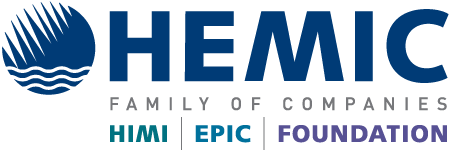Search by keyword
Quick Links
Log inSEARCH RESULTS
Sorry, there were no results matching your search. Please try again.
Search by keyword
Quick Links
Log inSEARCH RESULTS
Sorry, there were no results matching your search. Please try again.

Announcements

Since the early 2000s, insurance producers have been statutorily required to complete continuing education (CE) courses in order to renew their insurance license. While today’s technology offers several ways for producers to access CE courses, for years Bruce Fong, a revered insurance industry professional, provided a unique option that helped hundreds of producers across the islands fulfill their licensing requirements, grow their knowledge base and build relationships.
As the head of FDH, Inc., a training, consulting and contract services company, Fong first began offering in-person, classroom-style CE courses for aspiring and practicing insurance professionals in 1990. For nearly 30 years, content and delivery were fairly consistent, but his classroom courses were popular. When COVID-19 forced the closure of offices and classrooms, it prompted Fong to consider retiring his program.
Upon learning the impact of the pandemic threatened to end the program, another insurance veteran stepped forward to ensure this in-demand, local style of learning and networking wouldn’t be lost.
Sheri del Barrio first began attending Fong’s classes in 2008. And while some of her peers welcomed the advent of online CE courses, she thrived in the classroom environment: “There is a great dynamic that only occurs in person, with the energy of the classroom. You discuss what everyone is experiencing in the field, you engage in dynamic role-playing, and in doing so, you really build and deepen relationships.”
When del Barrio, the sales manager at Employers’ Protective Insurance Company Inc. (EPIC), heard that Fong was retiring his program, she wanted to find a way to keep this style of learning available for all, so she decided to visit him.
“When it was clear that our industry faced losing this rich, valuable and educational experience, I had to do something,” she said. “At EPIC, we’re focused on creating innovative solutions. We’re listening to today’s industry needs, and we have a passion for connection. Bruce agreed to share his material, knowing that I would continue his legacy of quality education, keeping insurance professionals engaged with dynamic, face-to-face instruction and supporting them as an observant, dedicated and caring educator invested in their desired result.”
With her first course on ethics slated to be offered at the start of 2022, del Barrio plans to continue Fong’s “pre-licensing structure” for prospective insurance professionals. The two-day intensive course offered prior to the licensing exam provides instruction to help upcoming producers successfully pass their tests the following day, thus securing their license and enabling appointments with insurance carriers. Once licensed, insurance producers in Hawaii must complete 24 CE credits every two years to maintain their license. Del Barrio will offer classes regularly to help fulfill those needs.
Stepping in and reaching out
Through EPIC, del Barrio will host pre-licensing and CE courses in newly designed training rooms located within the HEMIC Tower in downtown Honolulu. The courses will be open to all Hawaii insurance professionals, regardless of their location and employer. Online video options will be available for people who live and work across the islands or prefer virtual learning.
Offerings will include both life and health courses and property and casualty courses, as well as general courses (such as ethics) that can be applied to either license.
Del Barrio has been enthusiastically developing her course presentations, adding technological sophistication and a visually impactful style. She fondly recalls how Fong used transparent slides to present his material on a 1970s-style overhead projector. “We now have great tools to create dynamic presentations and encourage everyone’s engagement,” she said.
“In Hawaii, our insurance producers work well together – that’s part of the culture here,” she adds. “It allows everyone to raise their game, level up and ask, ‘Are we doing what is best for our clients, the businesses and workers of Hawaiʻi?’ This means more than being order takers, ensuring businesses have proper coverage, and saying, ‘Have a nice day.’”
“At EPIC, we want to nurture that mindset and the cultural value of mālama — taking good care of our communities” del Barrio said. “[Providing this coursework] is about continuing to educate and support one another and the industry at large. It’s for our collective good. It’s the right thing to do.”
To learn more about how HEMIC and EPIC are helping Hawaii business owners cover both state-mandated insurances under one roof, visit hemic.com/epic. EPIC is a wholly-owned subsidiary of Hawaii Employers’ Mutual Insurance Company (HEMIC), one of the largest workers’ compensation insurance carriers in Hawaii. EPIC’s first line of business is temporary disability insurance (TDI), leveraging HEMIC’s expertise in disability claims and management. Hawaii employers are required to obtain workers’ compensation and TDI.
Laura Newpoff is a freelance writer with The Business Journals Content Studio.